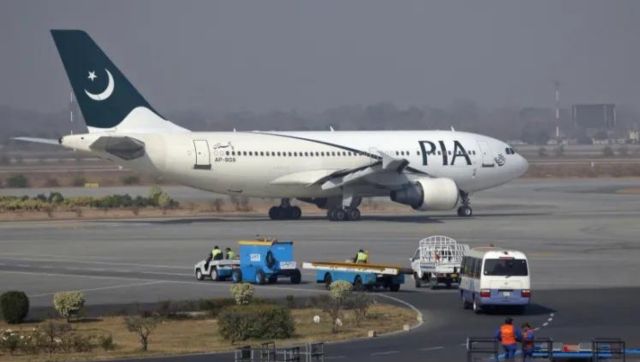Cash-strapped Pakistan has been carrying the burden of loss-making Pakistan International Airlines (PIA). As the country, governed by caretaker administration since August last year, prepares for general elections on 8 February, it is also speeding up plans for the new administration to sell PIA. “Our job is 98 per cent done,” Pakistan’s Privatisation Minister Fawad Hasan Fawad was quoted as saying by Reuters, responding to the plan to sell PIA. “The remaining 2 per cent is just to bring it on an excel sheet after the cabinet approves it,” he added. The caretaker administration in Pakistan was empowered by the outgoing parliament to take any steps needed to meet the budgetary targets agreed with the IMF. The previous elected governments in economic crisis-hit Pakistan have shied away from undertaking unpopular reforms, including the sale of the flag carrier. But in June, the administration agreed to overhaul loss-making state-owned enterprises under a deal with the International Monetary Fund (IMF) for a $3 billion bailout. The government decided to privatise PIA just weeks after signing the IMF agreement. Fawad said the plan, drawn up by transaction adviser Ernst & Young (E&Y), will be presented to the Cabinet for approval before the tenure of the administration ends following the election. The Cabinet will also decide whether to sell the stake by tender or through a government-to-government deal, he said. “What we have done in just four months is what past governments have been trying to do for over a decade,” the Pakistan’s Privatisation Minister said, adding, “There is no looking back.” Progress on the privatisation of PIA will be a key issue if the incoming government goes back to the IMF once the current bailout programme expires in March. A Reuters reported cited two sources close to the process saying a 51 per cent stake with full management control would be offered to buyers after parking the airline’s debts in a separate entity, under the 1,100 page report from E&Y. Meanwhile, PIA spokesman Abdullah Hafeez Khan said the airline was assisting the privatisation process, extending “full cooperation” to the transaction adviser. ‘Fast sale could devalue PIA’s worth’ The report by Reuters cited three senior airline officials saying a fast sale could devalue PIA’s worth, and it would not be a transparent transaction without due diligence. “We are not against its privatisation, and all we want is that you don’t just throw it away,” said one of the officials. However, Singapore-based aviation analyst Brendan Sobie said PIA is in dire straits: the plan submitted to the government was “essentially the only option to save the airline”. “The privatisation will be challenging and a sale is likely not possible unless it first undergoes a deep restructuring and the debts are cleared,” he said. As per airline records, PIA has air service agreements with more than 150 countries and generates about 280 billion rupees annually in revenues despite the EU ban. It has 10 slots at Heathrow, which, according to two PIA officials, are currently worth 70 billion rupees annually. It has a further nine slots at Manchester and four at Birmingham. Turkish and Kuwaiti airlines have been operating 70 per cent of the slots under a business arrangement with PIA that also allows the airline to retain them, the reported mentioned PIA officials as saying. According to PIA’s annual report 2023, the airlines physical assets, which include aircraft, hotels in Paris and New York and other properties, are worth 105.6 billion rupees ($375 million). PIA officials, however, said the market value of the assets could be above $1 billion. In any case, the hotels and other properties would not be up for sale, they said. PIA liabilities As of June 2023, PIA had liabilities of 785 billion Pakistani rupees ($2.81 billion) and accumulated losses of 713 billion rupees. Its CEO has said losses in 2023 were likely to be 112 billion rupees. Last yearin March, the Pakistan finance ministry stopped interest payments on the PIA debt, prompting the government and PIA management to consider privatisation. With inputs from Reuters
Ahead of 8 February Pakistan elections, cash-strapped country seals plans to sell national airlines PIA
FP Staff
• February 2, 2024, 16:15:51 IST
‘Our job is 98 per cent done,’ Pakistan’s Privatisation Minister Fawad Hasan Fawad said, adding, ‘The remaining 2 per cent is just to bring it on an excel sheet after the cabinet approves it’
Advertisement
)
End of Article